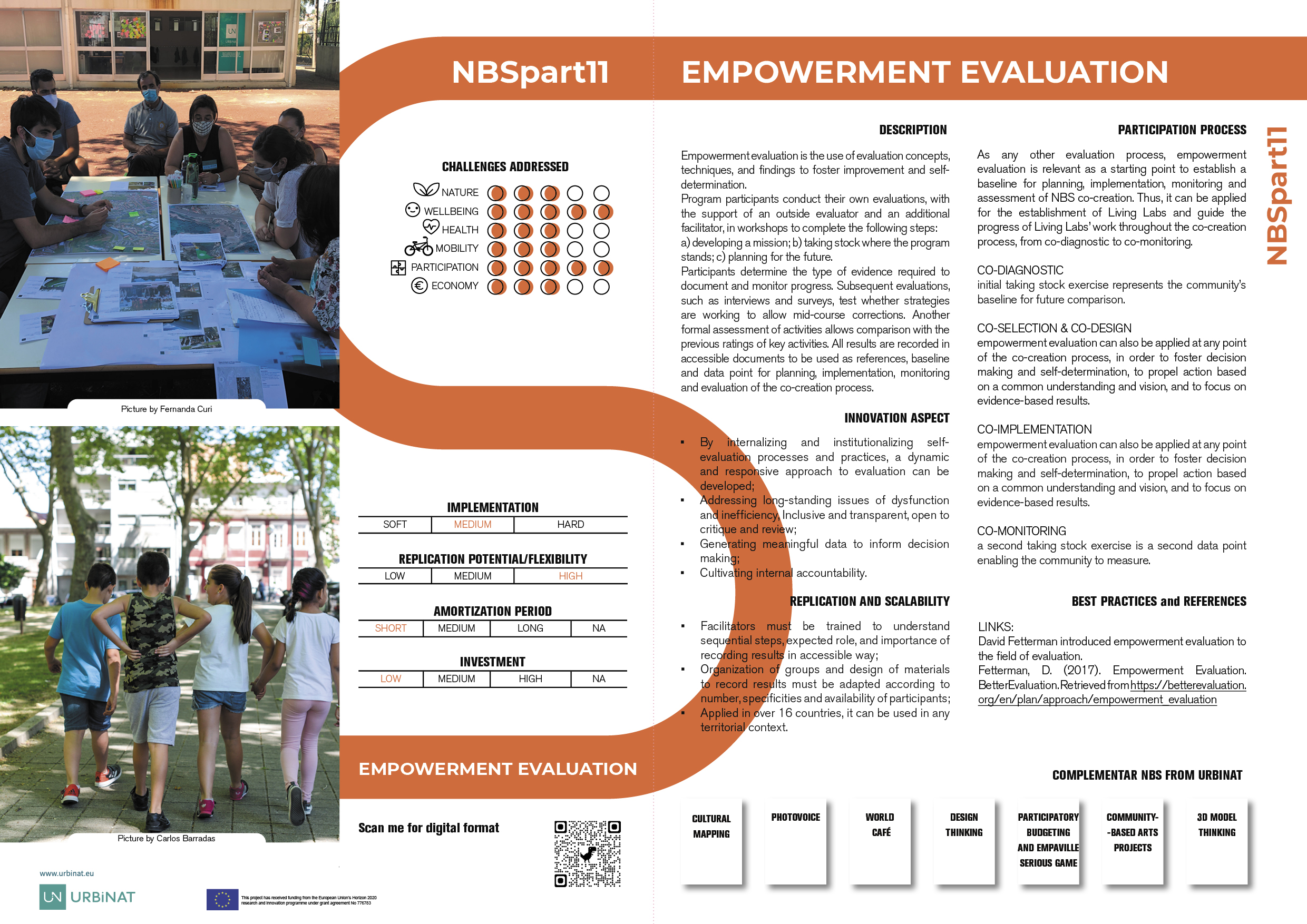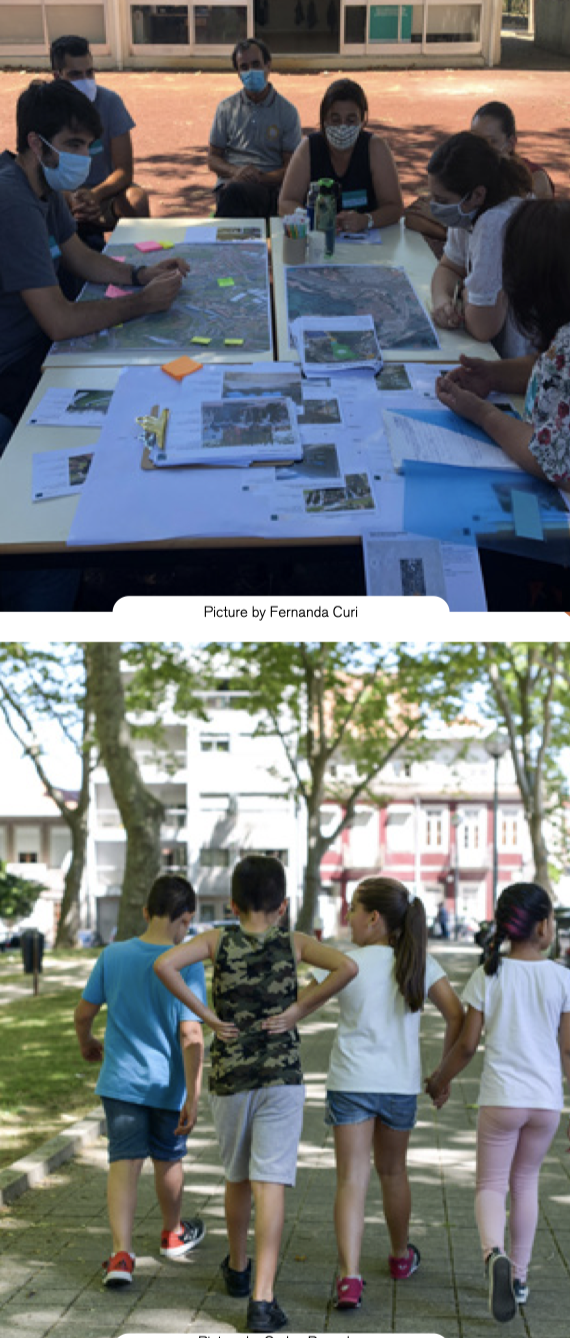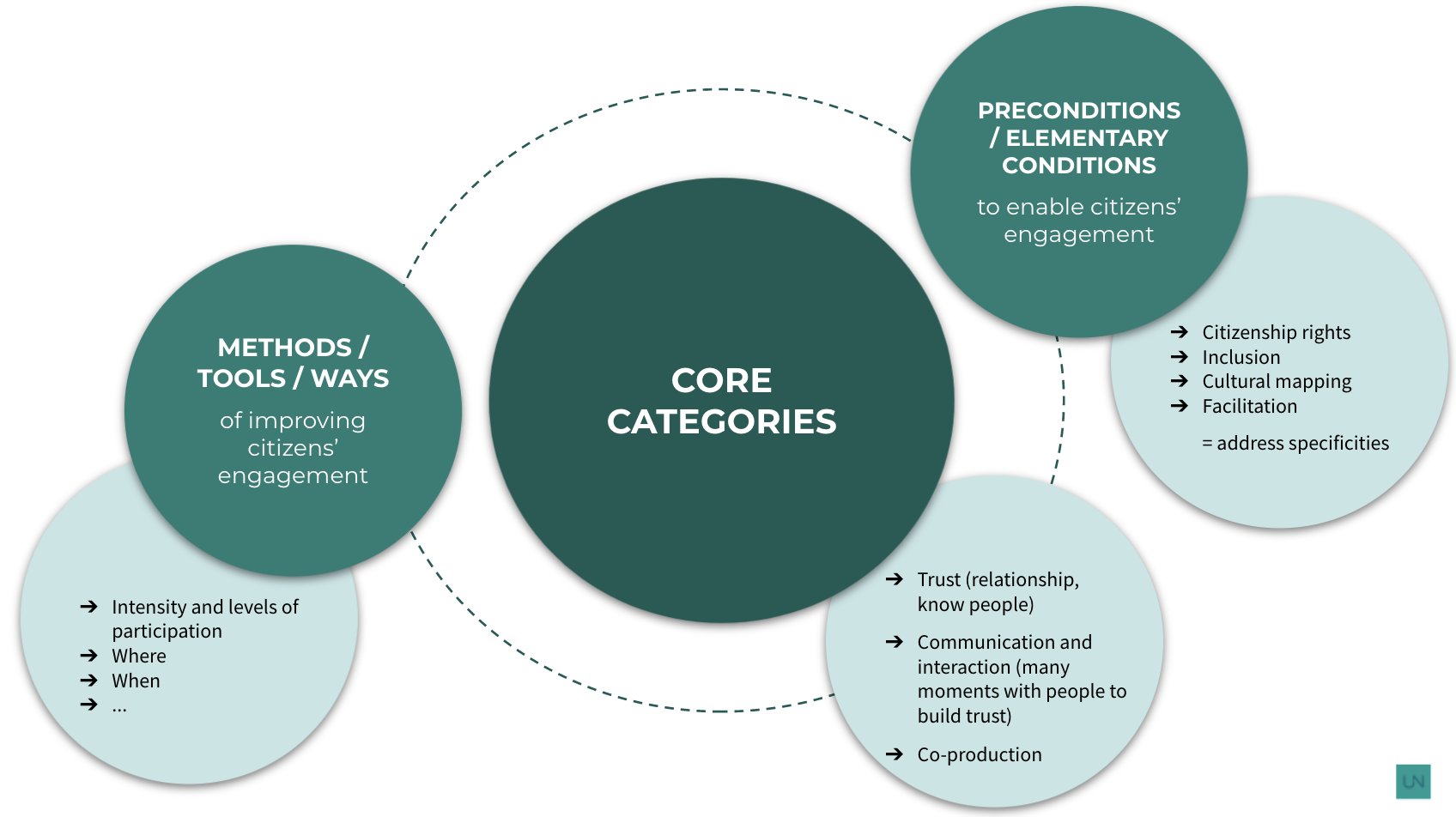Empowerment Evaluation
CHALLENGES ADDRESSED
Score impact
Nature
Wellbeing
Health
Mobility
Participation
Economy
DESCRIPTION
Empowerment evaluation is the use of evaluation concepts, techniques, and findings to foster improvement and self- determination.
Program participants conduct their own evaluations, with the support of an outside evaluator and an additional facilitator, in workshops to complete the following steps: a) developing a mission; b) taking stock where the program stands; c) planning for the future.
Participants determine the type of evidence required to document and monitor progress. Subsequent evaluations, such as interviews and surveys, test whether strategies are working to allow mid-course corrections. Another formal assessment of activities allows comparison with the previous ratings of key activities. All results are recorded in accessible documents to be used as references, baseline and data point for planning, implementation, monitoring and evaluation of the co-creation process.

[PDF Download] Empowerment Evaluation
Empowerment evaluation is the use of evaluation concepts, techniques, and findings to foster improvement and self- determination.
Program participants conduct their own evaluations, with the support of an outside evaluator and an additional facilitator, in workshops to complete the following steps: a) developing a mission; b) taking stock where the program stands; c) planning for the future.
Participants determine the type of evidence required to document and monitor progress. Subsequent evaluations, such as interviews and surveys, test whether strategies are working to allow mid-course corrections. Another formal assessment of activities allows comparison with the previous ratings of key activities. All results are recorded in accessible documents to be used as references, baseline and data point for planning, implementation, monitoring and evaluation of the co-creation process.
INNOVATION ASPECT
- By internalizing and institutionalizing self- evaluation processes and practices, a dynamic and responsive approach to evaluation can be developed;
- Addressing long-standing issues of dysfunction and inefficiency, Inclusive and transparent, open to critique and review;
- Generating meaningful data to inform decision making;
- Cultivating internal accountability.
REPLICATION AND SCALABILITY
- Facilitators must be trained to understand sequential steps, expected role, and importance of recording results in accessible way;
- Organization of groups and design of materials to record results must be adapted according to number, specificities and availability of participants;
- Applied in over 16 countries, it can be used in any territorial context.
PARTICIPATION PROCESS

-
1
CO-DIAGNOSTIC
Initial taking stock exercise represents the community’s baseline for future comparison.
-
2
CO-SELECTION & CO-DESIGN
Empowerment evaluation can also be applied at any point of the co-creation process, in order to foster decision making and self-determination, to propel action based on a common understanding and vision, and to focus on evidence-based results.
-
3
CO-IMPLEMENTATION
Empowerment evaluation can also be applied at any point of the co-creation process, in order to foster decision making and self-determination, to propel action based on a common understanding and vision, and to focus on evidence-based results.
-
4
CO-MONITORING
A second taking stock exercise is a second data point enabling the community to measure.
BEST PRACTICES and REFERENCES
LINKS:
David Fetterman introduced empowerment evaluation to the field of evaluation.
Fetterman, D. (2017). Empowerment Evaluation. BetterEvaluation.
Retrieved from https://betterevaluation. org/en/plan/approach/empowerment_evaluation







